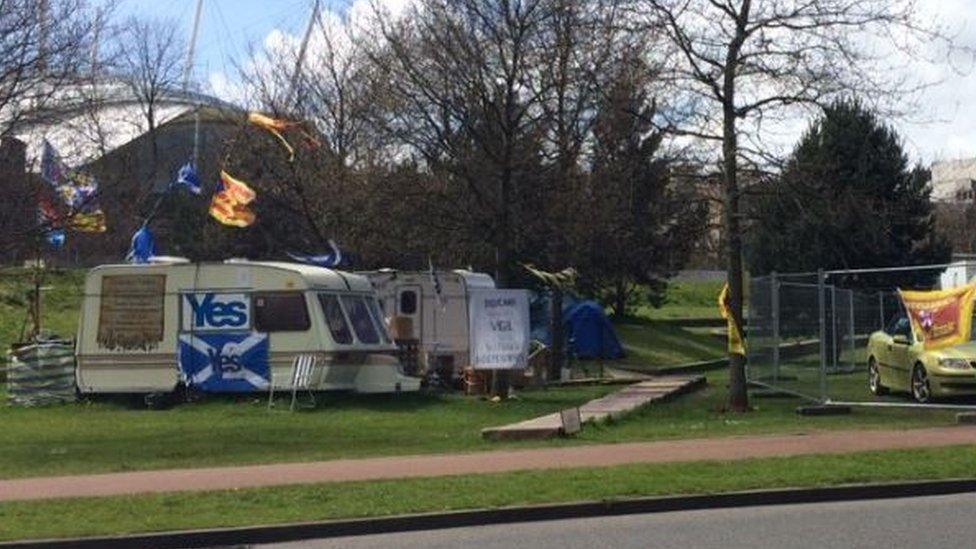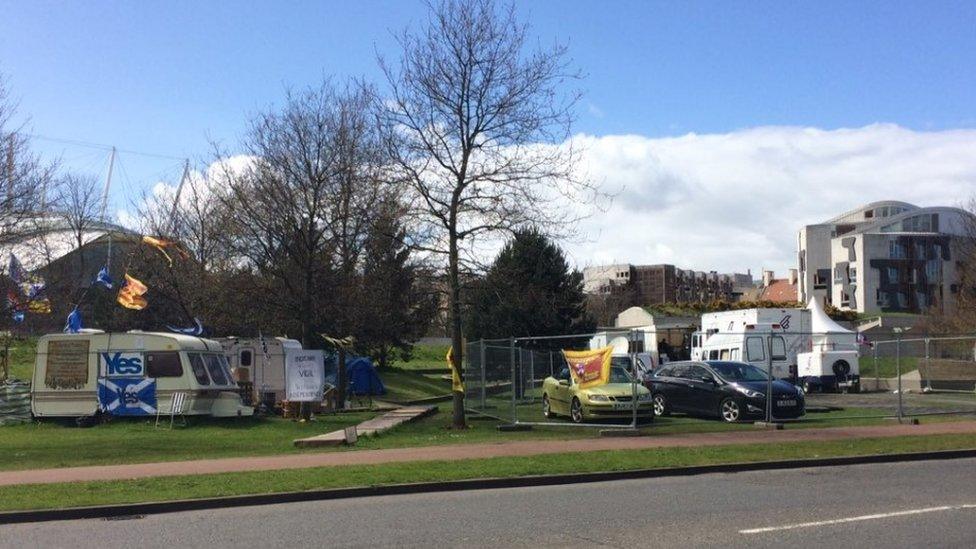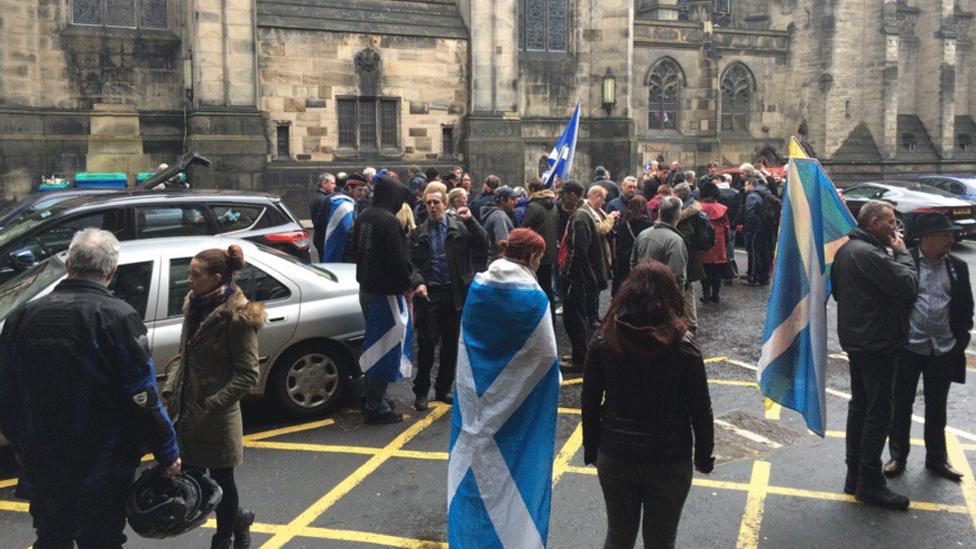Written judgement to decide IndyCamp eviction fate
- Published

The independence camp was set up in November 2015
A judge is to issue a written verdict to determine the future of Holyrood's independence camp.
Lord Turnbull heard two days of arguments about whether evicting the IndyCamp group from outside the Scottish Parliament would infringe on their human rights.
The camp was set up in November 2015, leading to a six-month court fight as the parliament sought eviction.
The judge said he wanted to "marshal his thoughts" after the latest hearing.
In court, parliament's lawyer Gerry Moynihan QC has argued that the group have every right to protest, but not to occupy land belonging to a third party permanently or for an indeterminate period.
In the latest proceedings, lawyer Jamie Gardiner, acting for three of the campers, argued that they could only carry out this particular protest by being outside the parliament round the clock; this was the "essence" of the protest.
He also suggested the camp had not caused much damage, although Lord Turnbull was critical of photographs which showed cars parked on the grass next to the camp despite a paid car park being visible across the road.
The judge said this was "arrogant, indifferent" and "blatantly self-interested" conduct.
Meanwhile, another camp respondent, Richard McFarlane, put forward an affidavit signed "Christ, King of Scotland" which denounced the court as illegitimate and called for the judges and the Queen to be executed.
And another camper, Garry Mitchell, argued that evicting the IndyCamp would be "an affront to democracy, to the rule of law and to this court".
After hearing these arguments, Lord Turnbull said he would need to marshal his thoughts and issue a written judgement at a later date.
- Published29 June 2016

- Published14 June 2016

- Published5 May 2016

- Published24 March 2016
